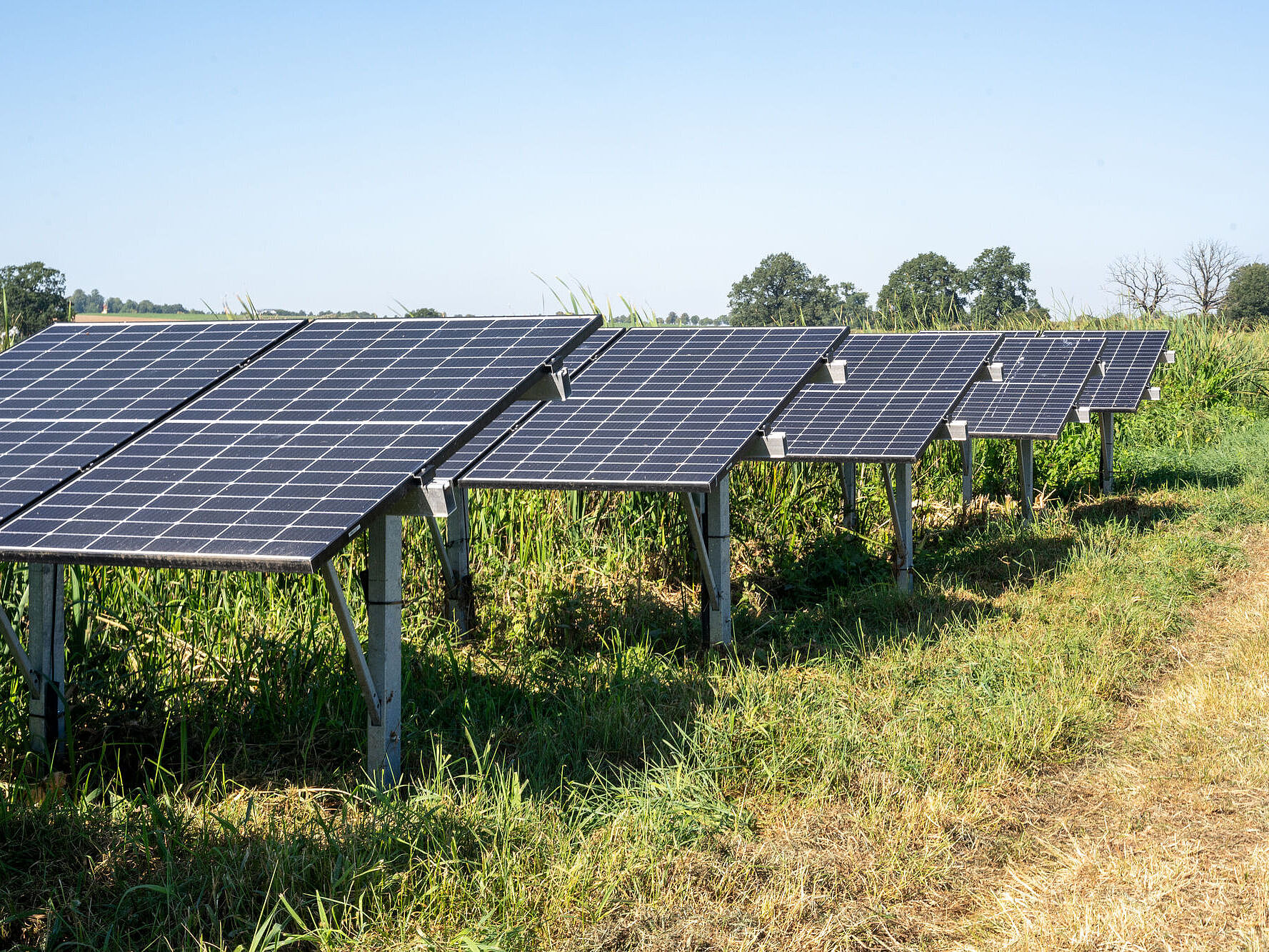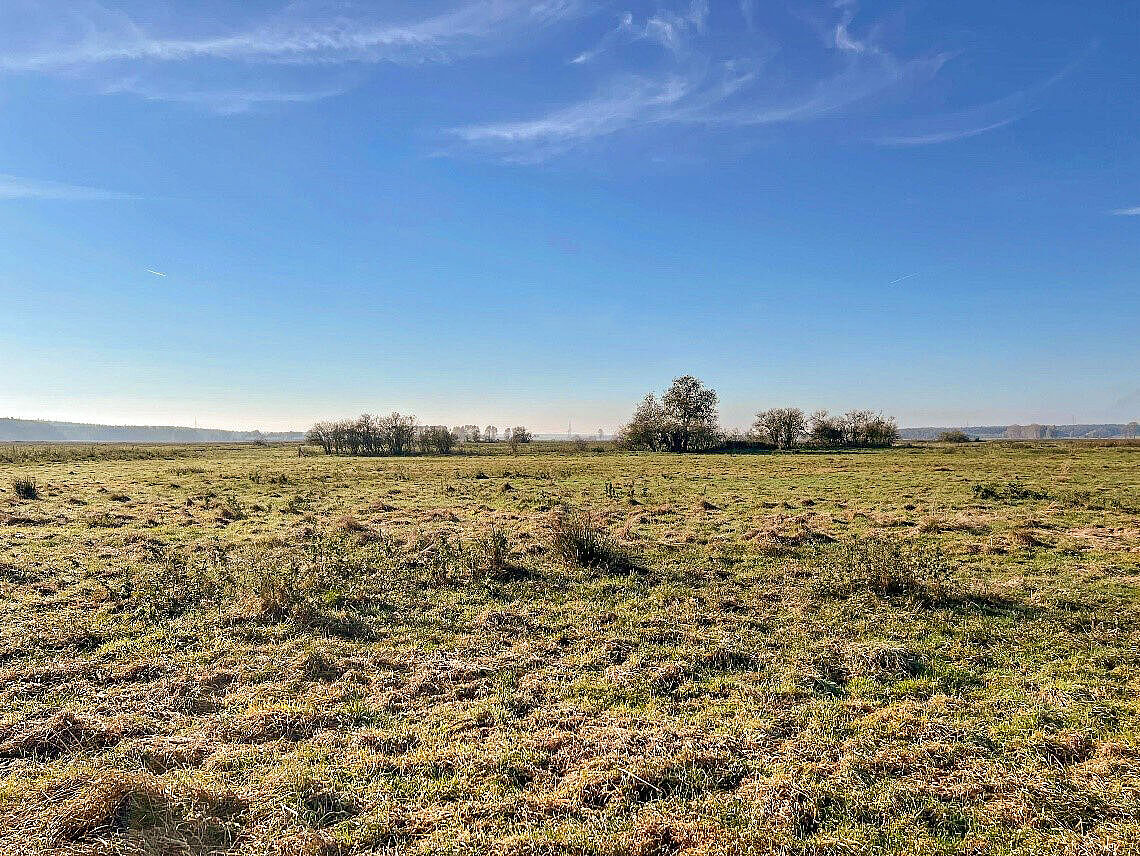Currently, around 70 per cent of Germany’s peatlands are drained for agricultural use, contributing around 44 per cent of total annual greenhouse gas emissions from agriculture and land areas used for agriculture. In total, seven per cent of Germany's total greenhouse gas emissions originated from drained peatlands. Peatlands are particularly widespread in the North German Plain and in the Alpine foothills. In order to achieve Germany's climate targets, at least 50,000 hectares of peatland would have to be rewetted every year.
Since the beginning of 2023, the German Federal Government has been promoting the construction of solar power systems on peatlands that were previously drained for agriculture if they are permanently rewetted. This is a new concept. A considerable amount of testing and research is therefore required for assessing the feasibility and impact. There is currently only one known PV system on a rewetted peatland area in Germany. No such PV projects are known outside Germany.
“It is important that only drained and heavily degraded peatland areas (i.e. those currently used for agriculture) are used for the dual utilisation of carbon storage in peat and the production of renewable energy via photovoltaics. We must prevent the installation of photovoltaic systems on peatlands that are not rewetted, because otherwise the greenhouse gas emissions from the peatland areas would continue,” explained Prof. Dr. Jürgen Kreyling from the University of Greifswald. “However, peatlands and peatland areas within protected areas that are valuable from a conservation perspective are excluded.”
The interdisciplinary project consortium comprises the subject areas photovoltaics, economics, law, as well as ecology with topics ranging from hydrology to biodiversity and plant growth to greenhouse gases. The project team is also investigating the possibility of implementing paludiculture for additional agricultural land utilisation.
Peatland photovoltaics (peatland PV) refers to the simultaneous utilisation of rewetted peatlands for climate protection and PV power generation. Generating electricity provides farmers with an additional source of income and can therefore incentivise increased rewetting in Germany. The aim of ‘MoorPower’ is to develop recommendations for the specific implementation of peatland PV.
The project is based around research into peatland PV at various scales: On an experimental site in Mecklenburg-Vorpommern, the researchers are building system designs with different mounting heights, solar module types and foundations on a total of six hectares of fenlands that are still being used for agriculture. Each PV system variation is then analysed in combination with three different rewetting conditions, i.e. at three different water levels, in particular with regard to ecological aspects.
The project team can test different materials, coatings and methods for the foundations of the special PV systems on a small area at a material testing site in Baden-Württemberg. In addition, the effects of shading caused by the systems on typical peatland plants are being investigated in pot experiments. Scientists at the Thünen Institute are analysing the effects of peatland PV, particularly with regard to the greenhouse gas balance, on a practical scale on an area of around 200 hectares of photovoltaics on rewetted peatland in Niedersachsen.
“There is little shade in natural peatlands, so shade is unusual for many plants there. The farmer is therefore interested in whether the shade reduces the growth of paludi crops such as cattails and reeds, as these could be harvested as additional income. However, it is also possible that the shade protects the freshly rewetted peatlands from drying out,” reports Junior Professor Dr. Andreas Schweiger, plant ecologist at the University of Hohenheim.
“The parallel planning of the photovoltaics system and the rewetting is completely new territory. As part of this project, we want to implement specific systems to test the best approach for peatland PV systems,” explains Agnes Wilke, project manager for peatland photovoltaics at Fraunhofer ISE.
Further information
MoorPower [de]
Contact
University of Greifswald
Prof. Dr. Jürgen Kreyling
Experimental Plant Ecology
Institute of Botany and Landscape Ecology
Soldmannstraße 15, 17489 Greifswald
Tel.: +49 3834 420 4131
juergen.kreylinguni-greifswaldde
Fraunhofer Institute for Solar Energy Systems
Agnes Wilke
Peatland Photovoltaics
Heidenhofstraße 2, 79110 Freiburg
Tel.: +49 761 4588 2501
agnes.katharina.wilkeise.fraunhoferde
Universität Hohenheim
Jun.-Prof. Dr. Andreas Schweiger
Field of Plant Ecology
Ottilie-Zeller-Weg 2, 70599 Stuttgart
Tel.: +49 711 459 22189
andreas.schweigeruni-hohenheimde
Johann Heinrich von Thünen Institute
Dr. Arndt Piayda
Institute of Climate-Smart Agriculture
Bundesallee 65A, 38116 Braunschweig
+49 531 596 2638
arndt.piaydathuenende


